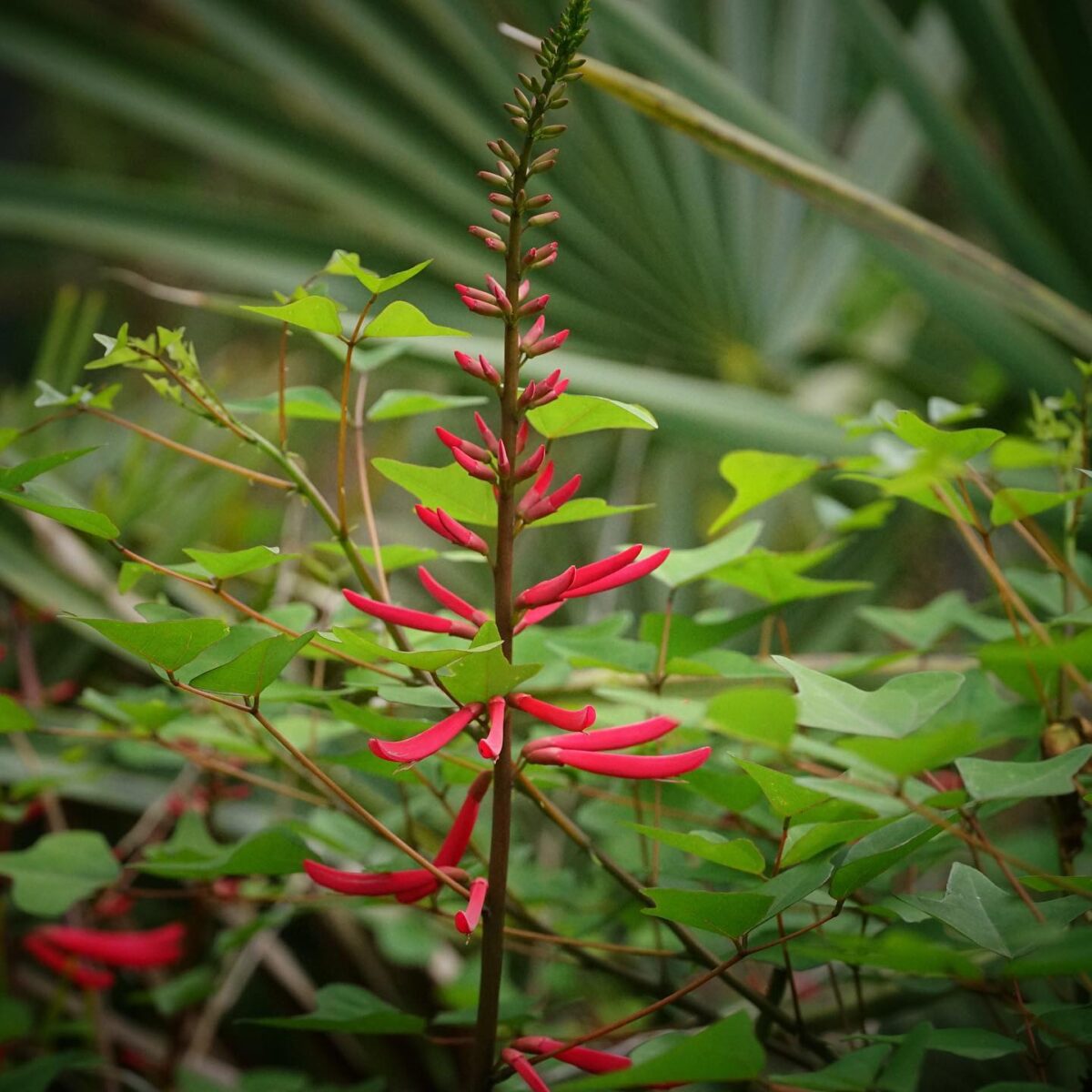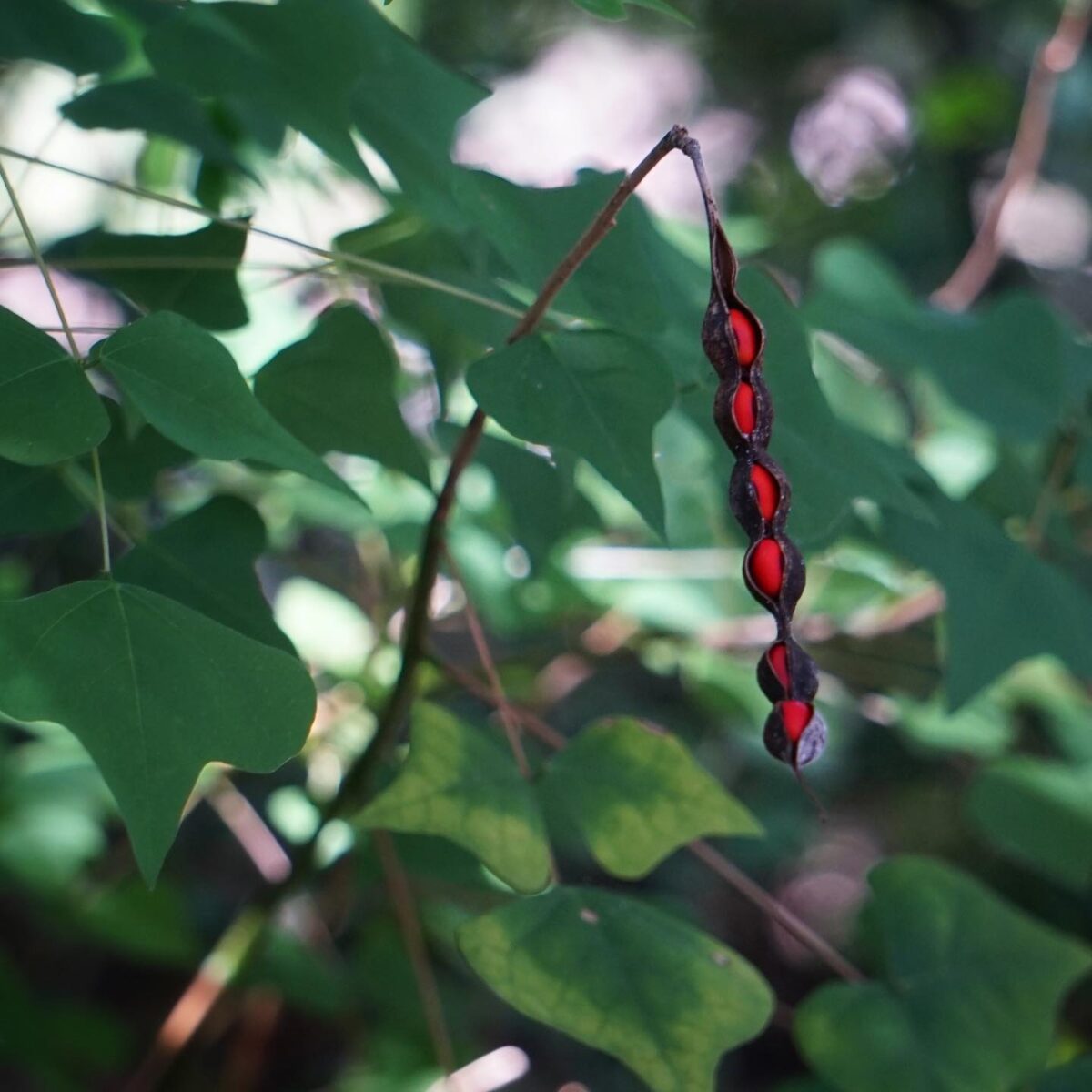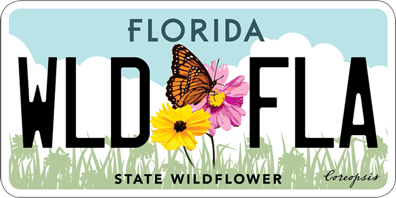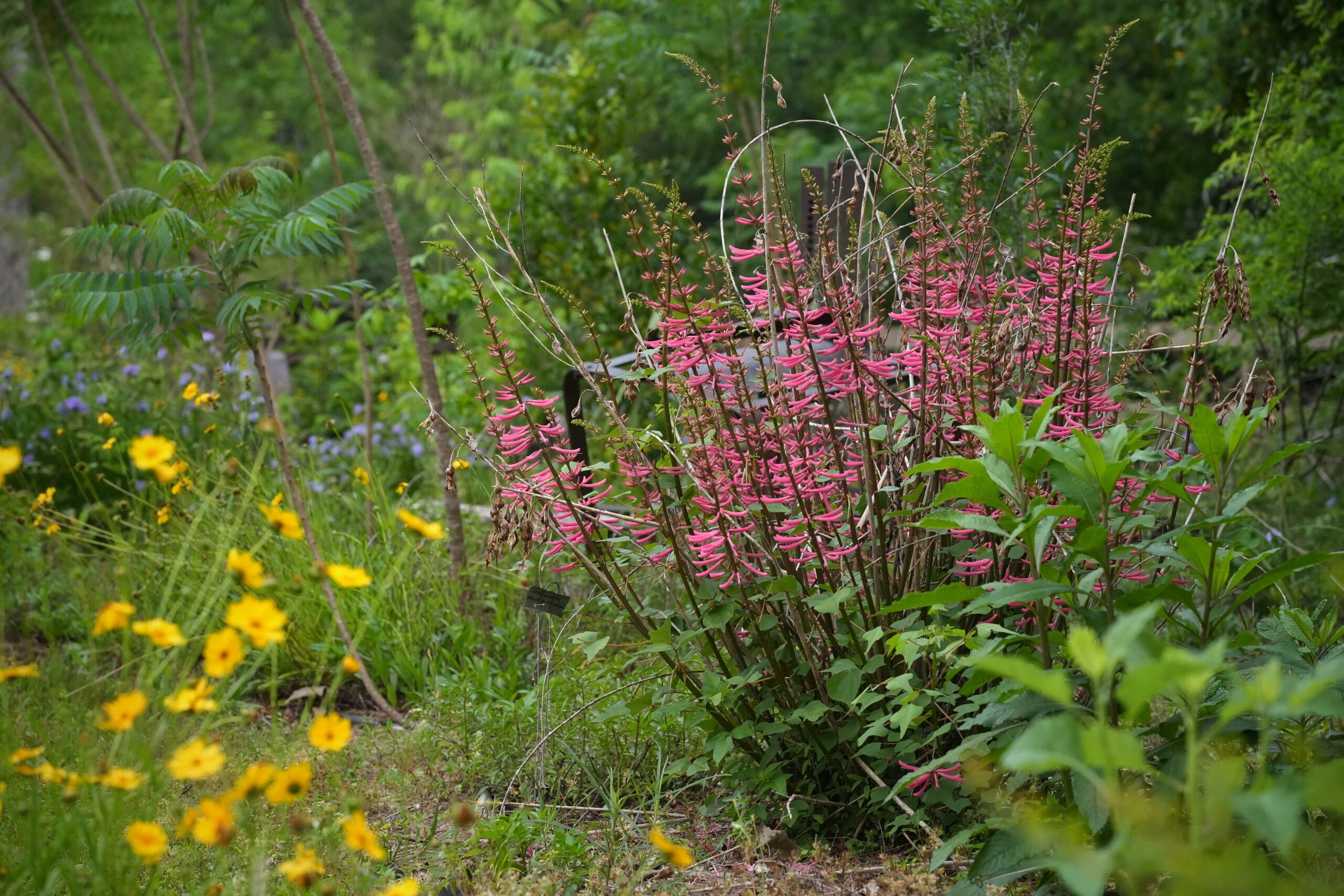Coralbean
Pictured above: Coralbean (Erythrina herbacea) by Emily Bell. Click on terms for botanical definitions. View post as a PDF.
Coralbean (Erythrina herbacea) gets its common name from its coral-colored seeds. It is also known as Cardinal spear, which refers to its red tubular flowers. It is a deciduous to evergreen woody shrub found in coastal hammocks, sandhills, flatwoods, mesic and upland woods, and pine rocklands throughout Florida. Its striking scarlet flowers attract hummingbirds, bumble bees and butterflies.
Coralbean’s flowers are born in long (4–6+ inches) terminal racemes. Individual flowers may be as long as 3 inches. Leaves are compound and composed of three light green, deltoid-shaped leaflets, each with tiny prickles along the underside of its margin. The stem and irregular branches are also armed with short curved spines. Bark is light gray to whitish and may be rough or smooth. Fruits are large, light drooping pods that turn nearly black and split open when mature. Seeds are shiny and bright red with a black spot or stripe.


The genus name Erythrina is from the Greek erythrós, meaning “red.”
Family: Fabaceae (Legume or pea family)
Native range: Nearly throughout
To see where natural populations of Coralbean have been vouchered, visit www.florida.plantatlas.usf.edu.
Lifespan: Perennial
Soil: Dry, sandy or calcareous soil
Exposure: Full sun to partial shade
Growth habit: 3–8’ tall, but has been known to grow as tall as 20’
Propagation: Scarify seeds by nipping the seed coat before planting in spring
Florida regions of landscape suitability: North, Central, South
Garden tips: Coralbean is an incredibly versatile plant. Left alone and in the right conditions, it can grow to the size of a small tree. Trimmed back, it works well as a border or mass planting and in container or above-ground planters. It is drought and salt tolerant and pest resistant, making it the perfect addition to your Florida landscape. It is very showy when it blooms.
Caution: This plant contains toxic alkaloids that may result in paralysis if ingested. Keep it away from pets and small children. Gloves are recommended when working with seeds.
Coralbean is available at nurseries that specialize in native plants. Visit PlantRealFlorida.org to find a native nursery on your area.
Learn more about Coralbean from the Florida Native Plant Society and the Institute for Regional Conservation.

